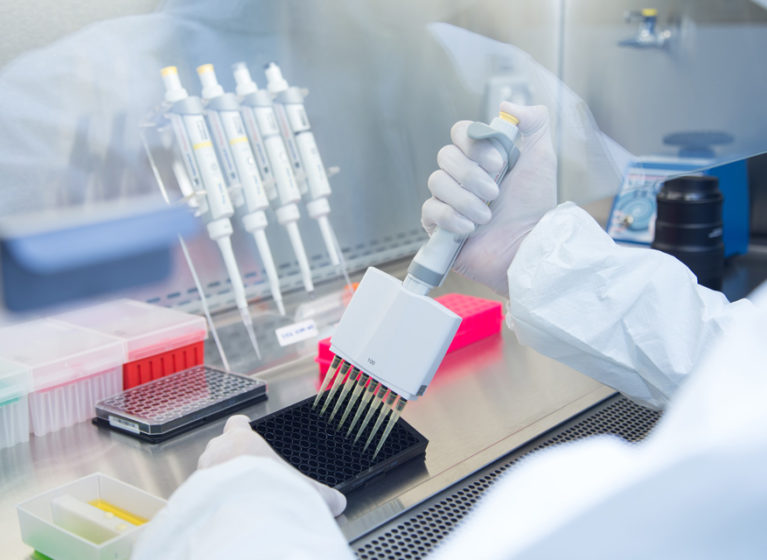
UVA Cancer Center researchers have been instrumental in advancing immunotherapy for patients with blood cancer. CAR T-cell therapy, approved by the U.S. Food and Drug Administration in 2018 for adult patients with aggressive, refractory B-cell lymphomas, has proved to be one powerful tool. UVA Cancer Center has treated more than 30 adult patients with this commercially available therapy. The results have been positive.
Using insights gleaned from these patients, UVA has opened a new clinical trial evaluating a novel CAR T-cell that could lead to higher long-term cure rates and lower toxicity levels. By continuing to push the limits of this therapy, researchers aim to expand the use of this treatment to include weaker, more vulnerable patients.
CAR T-Cell Therapy: How It Works
CAR T-cells are manufactured from the body’s own T-cells. Once they’re collected from the blood, T-cells are sent to a processing facility, where they're inserted with a special gene that codes for the chimeric antigen receptor (CAR). The CAR essentially reprograms the T-cell so that it seeks out a particular cancer cell and destroys it.
It can take 3 to 6 weeks to process CAR T-cells and get them into fight mode. Once they’re ready, the cells are injected back into the body. Within the first week of injecting CAR T-cells, they multiply and also activate non-CAR T-cells in the body. The combination of these "super cells" and the activated T-cells are extremely effective in identifying and destroying the tumor cells.
Potential side effects of this influx of super cells include cytokine release syndrome, which can lead to life-threatening complications. UVA oncologists have been making great strides to overcome this hurdle.
“We now have a better understanding of how to manage toxicity related to CAR T-cell therapy,” says hematologist-oncologist Indumathy Varadarajan, MD. “We’ve gotten better at assessing a patient’s disease, how healthy they are prior to CAR T therapy, and how to manage them so that they don’t have as many side effects. We also have new protocols in place that aim to get patients out of the hospital sooner — less than the standard 2 weeks — if we think it’s medically appropriate.”
Who to Refer for Car T-Cell Therapy
Potential candidates for Car T-cell therapy include adult patients who have failed two lines of therapy for:
- Diffuse large B-cell lymphoma
- Follicular lymphoma
- Mantle cell lymphoma
- Multiple myeloma
- Acute lymphoblastic leukemia
“The best advice I have for referring providers is to refer patients as early as possible,” says Varadarajan.
New Study Investigating Novel CAR T-Cell
UVA is currently enrolling patients for a clinical study (TRANSCEND FL) evaluating a novel CAR T-cell (JCAR017) that generates more “memory” T cells. Memory T cells are T lymphocytes that are able to recognize antigens previously encountered in the body. They can then clone themselves and initiate a more formidable response against these foreign particles. The goal is to achieve higher long-term cure rates, explains Varadarajan.
“We’ll be looking at patients with low-grade lymphomas that have failed multiple lines of therapy to see if they can be cured and not need any additional therapy,” she says. “We know this therapy works as well as the commercial CAR T therapy, but we are seeing lower toxicity, so it may be an option for those who are more frail and who might be at higher risk for complications with commercial CAR T.”